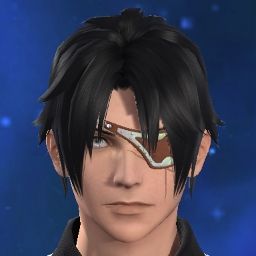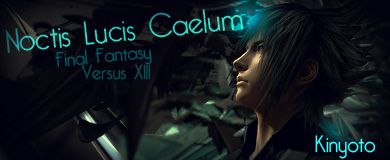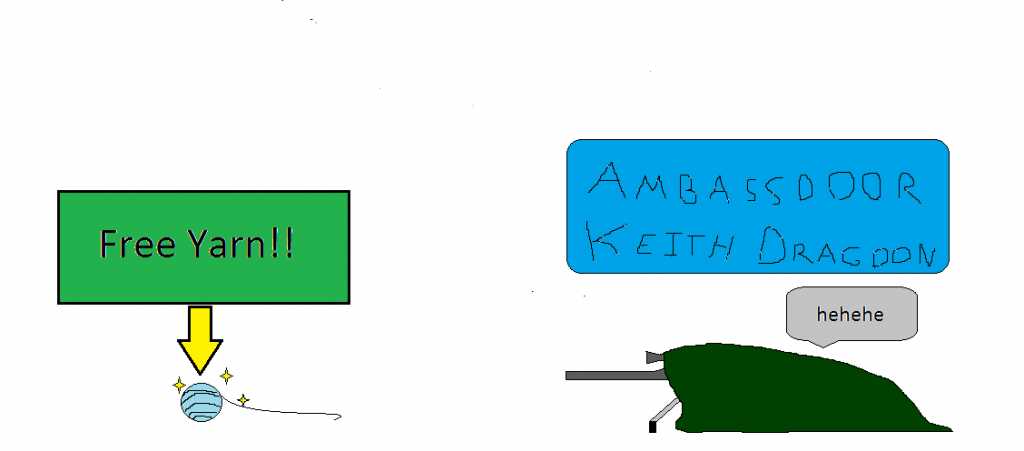Eh, a lot of people love to talk for "the fans" trying to descrive FFXIII as an untold horror, but fact is that quite a lot of people liked it. You don't sell 3 million copies of a sequel if "the fans" didn't like the original. Some fans did, some didn't.
Was it the best Final Fantasy ever? Not at all. Was it as terrible for "the fans" as many try to paint it? Not one bit.
And I personally didn't like it much, but I don't talk for "the fans".
Thread: A letter to Square
-
04-16-2013 01:56 AM #61Player

- Join Date
- Mar 2011
- Location
- Ul'Dah
- Posts
- 4,821
- Character
- Abriael Rosen
- World
- Goblin
- Main Class
- Gladiator Lv 100
(2)Last edited by Abriael; 04-16-2013 at 02:04 AM.
-
04-16-2013 02:27 AM #62Player

- Join Date
- Apr 2012
- Location
- Ul'Derp
- Posts
- 34
- Character
- Umbra Ornitier
- World
- Zalera
- Main Class
- Conjurer Lv 66
I can agree with you on this. I have a bit of a love/hate relationship with XIII. I know I'll buy the next one too because I'm curious in the way their going to end the story line.
With regards to the letter, I enjoyed it a lot. It said exactly how I feel and I know many of my friends feel.(0)
-
04-16-2013 03:33 AM #63Player

- Join Date
- Feb 2013
- Posts
- 1
- Character
- Finwe Riverwind
- World
- Excalibur
- Main Class
- Thaumaturge Lv 50
I am honestly curious as to what it is about FF13 story that people seem to like. Having read quite a few lengthy books over the years i feel like i know story progression decent enough to say that in FF13 it was done terrible. It was from what i remember being a few years ago now, shallow and pushed rather than believable and relatable. Hope being an uninteresting whining (with of course good reason) kid was still the most acceptable character in terms of growth. I have found over the years many people saying the same variety of things about the game, but when ever i see someone say they liked the story and it was good it never really has any explanation as to what aspect about it they liked so much.
(1)
-
04-16-2013 04:38 AM #64Player

- Join Date
- Mar 2011
- Location
- Gridania
- Posts
- 45
- Character
- Aeternus Nihilim
- World
- Excalibur
- Main Class
- Astrologian Lv 60
Well here is why I like FFXIIIs story (There will be a lot of spoilers in this post)
First I will touch on the overarching theme in FFXIII:
1. Minority vs Majority - Is it morally right to sacrifice a few in order to preserve the majority (The Purge/The world vs La'cie). Thinking about this from the opposite perspective, is it truly wrong to put others in danger to save the one you care most about? If so, then do you just give up on said person? (Vanille/Fang and Serah/Lightning/Snow)
2. Forgiveness - If one makes a mistake, what does it take to forgive said person, or for that person to obtain forgiveness. It is often said that the use of words such as "I'm sorry" is not adequate enough, but then what is? (Hope/Snow and Snow/Lightning/Serah)
There are more but these are the two main themes that pop out at me right now. (Trying to do this fast need to go to class soon. I apologize if my thoughts don't have a flow to them because I am rushing)
Now lets take a moment and consider the concept of Orphan. Orphan is basically the "god" of Cocoon and his one and only desire is to die and have Cocoon destroyed, in order to bring back the true god/goddess known as the Maker to have the world remade. To accomplish this, Orphan gives our heroes their powers, turns the entire world against them, and enslaves their loved ones in crystals. There is also the overlying threat that if the La'cie decide not to follow Orphan's plan, they will be transformed into thoughtless monsters. Orphan does all this just to make our heroes as strong as possible so that they can kill him. I find this story interesting because it literally reverses the usual heroes vs villain story line. Also, the main characters are being put through constant mental stress and moral conflicts. All of this is going on, and this only touches the surface of FFXIIIs story.
This is what Orphan says before you fight him, which pretty much sums it up:
"A haven, yea. Yet it must fall ere we be saved. Too frail a shell, and humans should not thrive. Too stout a shell and they would not die. Slaughter and salvation! Two irreconcilable Focuses we bore. Yet bound were we in a cocoon prison, impervious to our power. And so we thank you for granting us our longed-for birth. We are the Abandoned One, born but now to die. Our name is Orphan. By our hand, the world shall know redemption."
The music - Like all of its predecessors, Final Fantasy has always had outstanding music. I personally loved FFXIIIs music, although I agree that the battle theme got old sometimes :P. But as we all know, when there is any important moment FF always uses music that just makes the moment, FFXIII held up to this standard. Here are a few examples:
Oerba - http://www.youtube.com/watch?v=GLa0N7kVlfo
Nascent Requiem - http://www.youtube.com/watch?v=R-jpwEd4KSY
Born Anew - http://www.youtube.com/watch?v=0qyavbSmxW4 (read the translation in the comments. Simple but powerful)
FFXIII Main Theme - http://www.youtube.com/watch?v=CxSXm8qGjS8 (Has a few names, the wish, the promise, has many different variations used throughout the game)
Barthandelus Theme - http://www.youtube.com/watch?v=vbMbQLUr9cA (Everyone hated this villain, but i thought he was awesome. Every time he spoke I got chills.)(1)
-
04-16-2013 05:32 AM #65
-
04-16-2013 05:42 AM #66
-
04-16-2013 11:33 AM #67Player

- Join Date
- Mar 2011
- Location
- Windurst!
- Posts
- 783
- Character
- Powercow Cowcow
- World
- Excalibur
- Main Class
- Pugilist Lv 100
That's not the interpretation I got at all. According to the official Ultimania book, Cocoon was designed to be like the USA, a melting pot of people and whatnot. Given the political climate in the real world at the time, I see Square-Enix making a much more direct insult to their American audience with this game.
The citizens of cocoon are overly-complacent with their oppressive government with the exception of a handful of, let's face it, stupid rebels (you don't go into open conflict with a huge military with no plan, no army, and no real weapons. NORA is stupid like that.) The people are also deathly afraid of a boogeyman they know nothing about that they think is coming to get them, and the government uses that to its advantage to keep the people in line. Seriously, the people actually get into a mob armed with lamps and other things at the mere thought of a L'cie being in their city. They're all agreeable to having hundreds, if not thousands of people sent to their deaths for simply being vaguely near the Fal'cie in Bodhum even though there's no real cause for that action.
Everyone, even Sazh, is under the influence that just because you're a Pulse L'cie you're a murderous psychopath who must destroy Cocoon. Why? You'd think he'd realize that hey, despite his brand, he DOESN'T feel like slaughtering everyone he sees. He still feels normal, or at least he acts normal and rational. Seems to me like the people of Cocoon are so ridiculously brainwashed that the government can simply do whatever it wants and its people will just nod their empty heads in agreement. And remember, this is supposed to represent America.
What mistake did Snow make? Hope's Mom could have simply not taken up arms and stayed with the other civilians and her son, or heck she could have taken the gun and protected the civilians when Snow asked. She got herself killed, not Snow. Snow didn't get over to her and say "Get up woman, I need me a meat shield!" She just got up and followed him.2. Forgiveness - If one makes a mistake, what does it take to forgive said person, or for that person to obtain forgiveness. It is often said that the use of words such as "I'm sorry" is not adequate enough, but then what is? (Hope/Snow and Snow/Lightning/Serah)
Plus you'd think Hope would understand that without Snow's rather sloppy intervention that they would have all died anyway. Remember, Hope said Pulse was "Hell on Earth" (there's an Earth somewhere?) so he obviously knew that they were all essentially dead. Snow sorta saves them (at least temporarily), his mom gets herself killed, and Hope blames Snow like a petulant little brat. I could understand if he was upset for a little bit, being a child who lost his mother, and he was emotionally unbalanced at the time, but he keeps this attitude up a LONG time, and he actually intends to murder Snow. That goes way beyond being upset at the general death of a loved one and extends into "needs to be seeing a psychiatrist twice a week" mode.
I'm not sure what your point about Serah/Snow/Lightning is and who should be sorry for anything between those three, aside from Serah being kind of an idiot by not telling Snow what was going on for a long time.
Oh let's please do, this is the worst part of the entire narrative.Now lets take a moment and consider the concept of Orphan.
I get that he's unable to kill himself. OK, fine, I get that. But he's able to manipulate others into killing him? OK, I can get that too. But why go with such a silly roundabout way of doing it? Given how they can make people absurdly powerful pretty easily, why doesn't he just "level up" the heroes, transport them to himself, and have them kill him immediately? Why didn't he do this years ago if he'd been planning this all along? Why not send them the best weapons possible (like dozens of rocket launchers and whatnot) and billions of gil to upgrade their equipment? Is he not able to? Why not? He's freaking GOD and has a massive following of brainwashed, expendable minions and he's in complete control of the government. He also seems to be perfectly able to move about on his own and manipulate things directly to help out the heroes, so there's apparently no rules against that.Orphan is basically the "god" of Cocoon and his one and only desire is to die and have Cocoon destroyed, in order to bring back the true god/goddess known as the Maker to have the world remade. To accomplish this, Orphan gives our heroes their powers, turns the entire world against them, and enslaves their loved ones in crystals. There is also the overlying threat that if the La'cie decide not to follow Orphan's plan, they will be transformed into thoughtless monsters. Orphan does all this just to make our heroes as strong as possible so that they can kill him. I find this story interesting because it literally reverses the usual heroes vs villain story line. Also, the main characters are being put through constant mental stress and moral conflicts. All of this is going on, and this only touches the surface of FFXIIIs story.
Or for that matter, why not trick some of his brainwashed followers into stocking tons and tons of high explosives right outside his door, then having one of the poor saps "accidentally" blow it up? Is it too simple and he could escape? The dude can't escape 3 yokels with a gun-sword, a spear, and a toy ****ing boomerang and yet he can escape a hundred tons of C4? Give me a break.
Or maybe he can't do that because it'd be too similar to committing suicide, which he can't do. So he can't just blow himself up with explosives, but he *can* get a group of fighters together, directly challenge them to make them stronger, intentionally put them through all sorts of problems to level them up, and then tell them to kill him? How is that any less of a suicide? I understand that in his final moments he's supposed to fight tooth and nail for survival, but if he goes from "perfectly OK" to "completely obliterated by a hundred tons of C4" I don't think there'd be anything he could do against it, similar to how he couldn't stand up to the strength of the heroes in the end.
The tl;dr version of why Orphan sucks: he's poorly defined. He has constantly shifting limits to his powers and what he's allowed/able to do. It creates a laughably unrealistic villain who's either incredibly stupid, or the writers are going to go with the laziest possible explanation and say "he's so beyond us that his plans CAN'T make sense to us!"
Some of the music is pretty good. The problem is that a lot of the general audio cues we've come to expect from the Final Fantasy series, like a victory fanfare after winning a fight, are simply missing. It's one of those tiny details that made the FF series so great that's simply not here.The music - Like all of its predecessors, Final Fantasy has always had outstanding music. I personally loved FFXIIIs music, although I agree that the battle theme got old sometimes :P. But as we all know, when there is any important moment FF always uses music that just makes the moment, FFXIII held up to this standard.
Of course I have other problems too, but those seem rather nitpicky or are unrelated to the story.
Oddly enough though, I still didn't hate my time playing FF13, and I never felt that I had to beat the game just to see the ending; I kept playing it because I was enjoying myself. Still not really sure why though.(1)If someone wins an argument, they have learned nothing.
FOR DOCKHAND!
-
04-16-2013 06:44 PM #68Player

- Join Date
- Mar 2011
- Location
- Ul'Dah
- Posts
- 4,821
- Character
- Abriael Rosen
- World
- Goblin
- Main Class
- Gladiator Lv 100
Permit me to hazard a hypothesis: That's because the game was a pretty good game.
The main problem is that a few factors turned judging games into a matter of black and white, awesome or completely crappy.
Nowadays either a game is exceptional, or if it's just "pretty good" you'll see (at least on the internet) armies of people bashing it into the ground like it's the worst blight upon Earth, especially if it's part of a popular franchise.
If a game gets a 7 or even a 8 (especially if it's a popular franchise, again), it's considered an utter failure, instead of a "pretty good" or even good (in the case of the 8) game.
Nowadays if a studio makes a game that ranks under 8 on metacritic there are high chances that it will held against them by publishers the next time they pitch a game project.
Why is that? several factors. A main one is the internet (try doing your observation on this, and I'm quite sure you'll discover that this doesn't really happen between gamers that don't roam around the internet much or at all).
And within the internet there are two main factors: Press and discussion environments.
Discussion environments like newsgroup first (but at that time they were still small) and forums after contributed a lot in polarizing opinions between "awesome" and "completely crap", because in written discussion hyperbolic and extreme opinions simply are more effective to attract attention on one's position, giving people the impression that they're winning a discussion just by shouting louder than the opposition. In internet forums you'll very often see positions so extreme that if you just sit back and think about it, you'll wonder what the person smoked to get there, but it's very easy to be dragged into it instead.
The internet gaming press is another major culprit. Printed press is a lot less competitive that the internet. Magazines can keep argument more balanced because they don't need to resort to big headlines in order to "sell". Once the reader gets to the headlines he already bought his copy, so the selling point of game magazines is entirely different.
On the other hand the internet press relies a lot on extremes and hyperbole in order to attract readers. An over exaggerated tabloid-like headline or a polarized (either very high or very low) review score will simply draw more clicks on an article than a balanced one.
And on the internet "hits" are money. Straight and direct conversion. The more pageviews you get, the more impressions your ads get, the more you can get higher paying ads.
Of course (unless someone stoops so low as to write misleading headlines, and it happens) the body or the article needs to reflect the headline, so you see a ton of attention grabbing extremized articles. Check places that aggregate articles and rank them by "Hotness" like N4G.com and you'll notice this trend very easily.
Extremized and controversial wins and balanced loses.
Add to that the fact that the internet press often houses a lot of people with absolutely no journalistic background, to which no one even went near to teach the idea of journalistic integrity, and you get the full picture.
As in every environment there are opinion leaders, and when the opinion leaders polarize their opinions, and turn the place into a cesspit of negativity, hate, rage and fanboyism, a large part of the rest will inevitably follow.
(which is, mind you, another large difference between today and the game industry crash. Invalidating the video posted a few pages back further. At that time there was no internet making things look a lot worse than they are)
So yeah. Final Fantasy XIII is (in my opinion) actually a pretty good game. It's production values are exceptionally high and it has quite a lot of likable elements. It's also (again, in my opinion) not an exceptional game.
But telling what a blight on earth it is, and how it's a "slap in the face of the fans" will allow people to feel that they're shouting louder (and more effectively) during their beloved forum discussion.
Just like, if you're a journalist on the internet, giving it a 4 (without even getting anywhere near to finishing it, and I won't name names) gets you a lot more attention than giving it the 7.5-8 it (IMHO) deserves. Especially if it gives you a chance to bash a large and popular franchise or a large publisher like Square Enix. Shouting "the king is dead!" turns a lot of eyes.
Its metacritic score sits at a quite nice 83 (with a still very decent 7.9 user score) yet what are the reviews many remember? the 4s and 5s. What are the opinions many remember? The extremely negative ones on forums and on websites/blogs
Are those artfully (or often not even intentionally) polarized opinions a realistic expression of the actual quality of the game? Not a chance in hell.(2)Last edited by Abriael; 04-16-2013 at 07:17 PM.
-
04-16-2013 07:19 PM #69Player

- Join Date
- May 2011
- Posts
- 2,084
- Character
- Quichy Sturmbruch
- World
- Ragnarok
- Main Class
- Thaumaturge Lv 59
i think the best SE could do right now is releasing a FF game with cuddly FF characters like in FF7 oder FF9.

static camera points and not thousands of camera driven "dramatic movie" cutscenes.
sometimes its better to calm down a bit.
FF13 was just too much of that "boom boom* blockbuster movie presentation". thats why it was so linear.(1)
-
04-16-2013 07:26 PM #70Player

- Join Date
- Mar 2011
- Location
- Limsa Lominsa
- Posts
- 1,586
- Character
- Fiery Mojo
- World
- Gilgamesh
- Main Class
- Marauder Lv 100
Game? Yes. Final Fantasy game? Not so much.
Metacritic lists it as the joint eighteenth-best Final Fantasy game. I don't think it's unreasonable to expect a new Final Fantasy to hit the top five every time and top ten should be a given. Less than that and the game is surely not up to anyone's expectations.
Now, of course, this is also opinion. I happen to agree with it. A lot of others do too, and I say that not because I'm trying to speak for the majority, or because I look at what people write on internet forums (I don't), but because the physical evidence shows it. Second-hand copies of the game are plentiful and available at incredibly low prices for a game of its age (£5 to £10 here in the UK). Compared to other Final Fantasies and other RPGs released in the same year, this shows that a larger proportion of folk who have bought the game consider it near-worthless.
If you thought that the Paradigm Shift, Crystarium, Item Upgrades and Cie'th Stone missions were good game mechanics then good for you. From the perspective of past Final Fantasies (and present if we include FFXIV here), my opinion is that they are weak and uninteresting, like the characters and the plot. I love the style, the graphics, the music, the lore/bestiary and the UI, but that's not enough to make me want to play it for 100% completion.
As mentioned briefly before, FFXIV is looking to tick all of my 'expectation' boxes and set the FF series back on track, if not at the least for me, hopefully for all fans of the series. Its current Metacritic position at #60 (yes, 1.0) will hopefully be forgotten as ARR takes the #1 slot until the release of XV, and maybe for some time after.
I'm fully aware that you have six years' experience in the industry, but in this thread and others in recent weeks, you would do well to consider your own posts if you percieve others have put across their opinions in this particular way.(2)




 Reply With Quote
Reply With Quote








